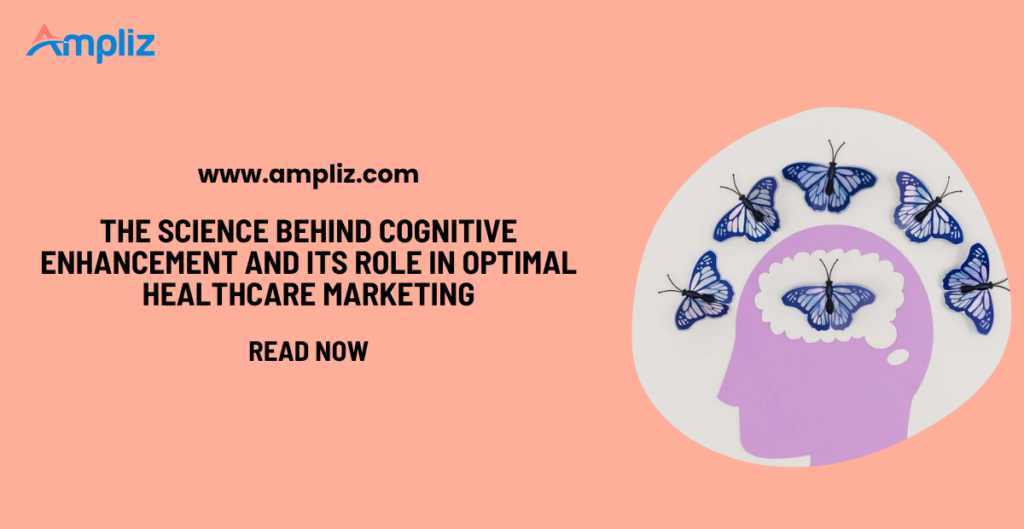In the modern world, cognitive enhancement has become a fashionable term, gaining acceptance within the scientific community and among marketers of optimal health. A push for brain power has generated a growing market for supplements, technologies, and lifestyle interventions to improve mental performance, focus, and memory.However, what does the science say about cognitive enhancement, and how does it guide marketing practices in the health industry?
Understanding Cognitive Enhancement
Cognitive enhancement is defined as interventions that promote brain functions, such as memory, attention, creativity, and executive functions. Such interventions can range from pharmacological solutions such as smart drugs to practices such as mindfulness.
Below are some of the key mechanisms of cognitive enhancement
Neurotransmitter Modulation
Neurotransmitters like dopamine, acetylcholine, and glutamate are key players in learning, memory, and attention. Taking brain supplements such as mindlabpro improves the brain’s function, mood and focus. Activities of such cognitive enhancers facilitate signal transmission, thus enhancing attention and information retention. For example, acetylcholine plays an essential role in the consolidation of memory, and choline precursors are very useful in increasing its levels.
Neuroplasticity
The brain constantly forms new neural connections and reinforces old ones, which constitutes the basis of learning and adaptation. Physical exercise and some nootropics can increase the levels of brain-derived neurotrophic factor (BDNF), a protein that nourishes neuroplasticity and cognitive endurance. This mechanism seems crucial in helping people recover or adapt to new challenges after cognitive impairment.
Cerebral Blood Flow
Any increased blood flow to the brain provides oxygen and other nutrients while washing out the wastes. Some ingredients in cognitive enhancers, such as ginkgo biloba and citicoline, are thought to improve vascular health, hence augmenting mental alertness and reducing the risk of cognitive decline. Aerobic exercise strongly contributes to this mechanism by keeping the vascular system healthy.
Reduction of Oxidative Stress
Oxidative stress specifically affects neuron integrity, thereby worsening aging. Antioxidants such as vitamin E, resveratrol, and flavonoids have been implicated in modulating free radical activity, thus preserving cell integrity and providing for better, longer-term brain health. These antioxidants find their way into dietary plans and supplements aimed at genetics that will be defended through supplemental doses in combination with their use in dietary management for their attracting activity with oxidative stress on aging and preventive action on Alzheimer’s disease.
Hormonal Regulation
Cortisol, insulin, and thyroid hormones largely regulate cognitive functions, including memory, mood, and attention. Adaptogens such as ashwagandha are known to modulate cortisol levels. At the same time, nutritional measures tighten the grasp on the working state of insulin and thyroid hormones, consequently allowing for a return to optimal cognitive well-being.
Mitochondrial Support
Mitochondria are power plants inside the very cells, which play a vital role in preserving neuronal health. These combinations of mitochondrial boosters such as Coenzyme Q10 (CoQ10) or PQQ (Pyrroloquinoline quinone) enhance mitochondrial function and thus aid in the energy metabolism of neuronal cells, and also prevent the brain cells from degeneration associated with aging. Physical activity and intermittent fasting also regulate mitochondrial biogenesis, thus enabling cognitive functioning over a longer duration.
Evidence-Based Approaches to Cognitive Enhancement
Pharmacological options, nutritional strategies, lifestyle alterations, mindfulness training, and technological approaches form evidence-based cognitive enhancement strategies. Omega-3 fatty acids in fish oil are good nutritional interventions for supporting proper brain integrity in cell communications. Vitamins B are a micronutrient category known to mitigate cognitive decline caused by the decline of homocysteine. They support adaptogens to deal with stress effects, improving a person’s focus and coping capacity.
Mindfulness manifestations have been found to be beneficial for improving attention control and emotional regulation by means of neural activation of the prefrontal cortex and decreased amygdala activity resulting from stress.
Brain-training applications provide the most significant possible cognitive exercises with real-time feedback on brainwave activity. The training allows users to achieve optimum states of mind and improve the targeted cognitive skills of specific interest, such as problem-solving and focus. Pharmacological solutions offer more avenues for enhancing focus, memory, and resilience. Each of these avenues highlights the value of evidence-based strategies for yielding measurable improvements in cognition.
Emerging Trends in Cognitive Enhancement
The current trends in cognitive enhancement are some of the results of rapid advances in biohacking, wearable technologies, artificial intelligence (AI), gut-brain-axis research, and psychedelics. Biohacking is an umbrella term covering all self-optimization methods for using different dietary, supplementation, and technological interventions concerning an individual cognition profile. Primarily associated with this trend are wearables, such as EEG headsets, which can give real-time insight into the brain’s activity, helping the user improve their concentration, relaxation, and mental clarity.
Artificial intelligence platforms are transforming the field. They analyze the user’s biographic data to offer personalized recommendations about improved eating habits, exercise, sleep, and everything that affects cognitive health. For example, apps that use AI monitor habits and suggest interventions based on individual performance metrics.
Research on the gut-brain axis is another fascinating area of study. The literature describes the microbiome as having a huge influence on mood, cognition, and stress resilience. Probiotics and prebiotics are now being investigated for cognitive enhancement through the effects on one of the most essential aspects, the gut microbiome. Meanwhile, psychedelics, such as microdoses of psilocybin, are garnering more and more attention in scientific circles as agents that enhance creativity, emotional regulation, and problem-solving capabilities. When used in a guided way, such substances have the potential to give exciting directions in cognitive enhancement.
Strategies Driving Optimal Health Marketing
The marketing of optimal health to cognitive enhancers deploys evidence-based claims, personalization, and digital engagement to woo consumer interest. Companies build trust behind their products through superior clinical trials and collaboration with neuroscientists, thus ensuring products claim credible credibility and transparent value.”Personalization” constitutes a key strategy, with digital tools and AI-led quizzes recommending items tailored to individual cognitive goals of memory improvement or stress reduction. This level of customization fills consumers with assurance concerning their purchases and adds an extra cherry on top of their satisfaction.
Holistic positioning connects cognitive enhancement to overall well-being. Against mental, physical, and emotional health backgrounds, marketers could showcase how their products play an integral part in a larger wellness market. Digital platforms that include influencer collaborations, podcasts, or educational webinars will amplify their reach and credibility. Such channels allow organizations to interact with tech-savvy audiences and educate them about their products.
Equally powerful in evoking brand loyalty, storytelling and testimonials resonate with users’ real-life transformations and experiences, making cognitive enhancers relatable and engendering trust among prospective clients. Subscription models and bundled pipelines, often pairing supplements with access to apps or wellness services, are long-term cognitive support tools that breed customer retention. These tactics not only boost sales but also improve the customer experience.
Ethical Considerations
Some challenges accompany advertising cognitive enhancers. Ethical concerns crop up regarding exaggerated claims, disparity in accessibility, and the potential for misuse. Marketers must walk a fine line between sensationalism and responsibility, offering products that are safe and effective. Consideration should be given to obeying regulations and using transparent labeling to keep consumer trust.
Endnote
Cognitive enhancement creates an exciting juncture between neuroscience, technology, and health marketing. By understanding the science behind cognitive enhancers, alongside ethical and evidence-based marketing practices, organizations might ultimately be paving paths and opportunistic avenues with aids that will create yet another unfolding area within consumer well-being.
As the field continues to develop, the primary focus should be on the responsible empowerment of individuals to achieve their highest cognitive potential. The advancement of both research and technology will portray the real future of cognitive enhancement positively for individuals and society.



